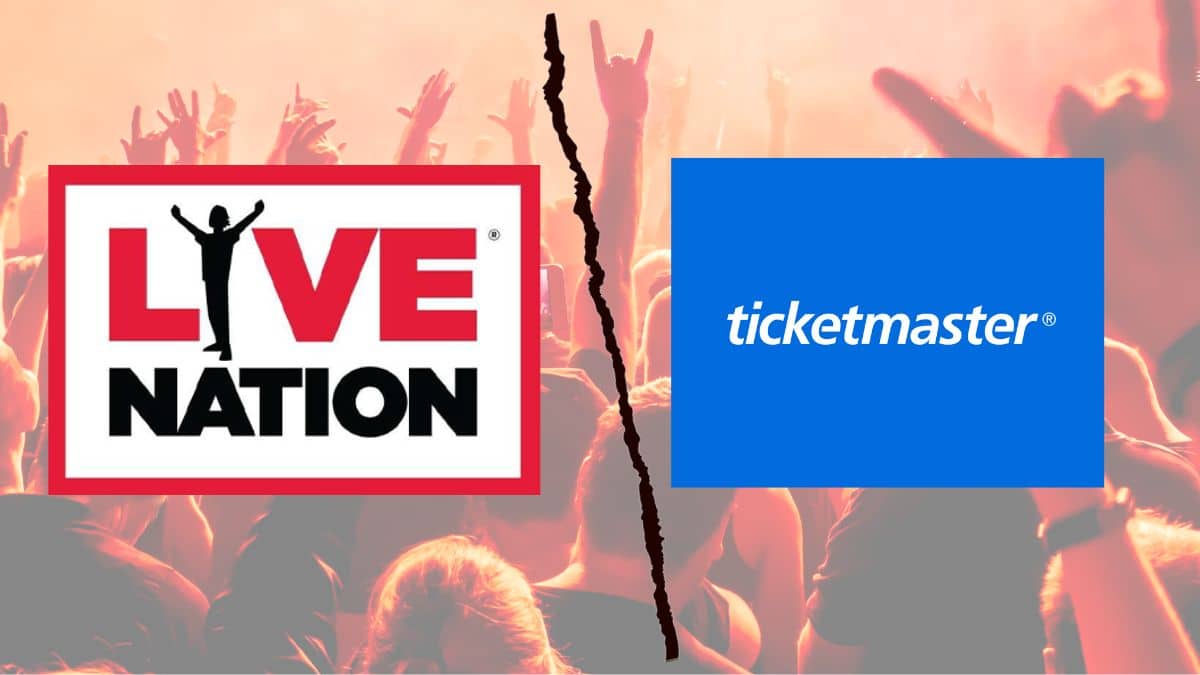Taylor Swift just announced bombshell news: she’ll be releasing her 11th studio album this April. However, with the news comes the question of an upcoming tour. After The Eras Tour ticketing fiasco, fans won’t be too confident in their ability to score tickets, should the popstar decide to hit the road in support of new music.
In an Op-Ed for The Hill, Michael A. Carrier, a board of governors professor at Rutgers University Law School, highlighted the fact that Swift would be forced to use Ticketmaster on an upcoming tour due to the ticketer’s power over large venues. Carrier noted that “Ticketmaster is the only option.”
When tickets to the Eras Tour went on sale, millions of fans were met with woes during the ticket buying process, including hours-long queues, error codes, and tickets not appearing in their cart. Millions of fans left the sale frustrated and empty handed, which even sparked an investigation into Ticketmaster and Live Nation’s 2010 merger by the Department of Justice.
Rather than accepting what went wrong, Ticketmaster pushed the blame on the secondary market and cited Swift’s overwhelmingly high demand.
“The company had every reason to cast blame elsewhere,” Carrier said. “But it also had no reason to care about quality. As a monopolist, it was not subject to a competitive marketplace. It could offer a bad product and not worry about customers fleeing from bots and cyberattacks. In fact, it could continue increasing its fees.”
Swifties aren’t alone, either; fans of top acts like Olivia Rodrigo, Morgan Wallen, Bad Bunny, and blink-182 all felt the burn over the past year due to Ticketmaster and Live Nation’s continued monopoly, as the pair acts as a ticketer, promoter, and venue operator all in one.
| READ: Live Nation Probed by DOJ Over Agreements with Venues, Artists |
Carrier also delved into Live Nation’s alleged violation of antitrust laws, pointing to its exclusive dealing that locks venues into multi-year partnerships and requires them to use Ticketmaster for its ticket provider. This has led to the entertainment giant controlling at least 60% of the promotion market.
“For any venues not part of these arrangements, the company has employed tying,” Carrier said. “As it might threaten the venues: “You want our artist? You must take our tickets.'”
According to a report by Bloomberg, the DOJ’s inquiry into Live Nation and Ticketmaster’s business practices has expanded with a fresh demand for new information and documents. While reports had indicated that the DOJ had hoped to file an antitrust lawsuit against the companies by the end of 2023, the process has dragged on, due to their resistance to cooperate with the investigation. Now, amid this new request for more information, there is hope for a trial later this year.
Swift’s ticket fiasco helped highlight the problems with the merger, and Carrier believes that a “strong antitrust case and remedy could fix this.”
“The blatant violations of the 2010 decree show that the company cannot be trusted to undertake actions a court might compel,” Carrier said. “For that reason, Ticketmaster and Live Nation should be broken up, with additional remedies including the termination of exclusive contracts and sale of venues.”
For now, it’s up to legislators and fans to speak out and keep-up the momentum. As a part of Fan Fairness Coalition’s “The Monopoly” campaign, live eventgoers have sent out more than 72,000 letters to Congress, calling for the merger to be broken-up. Additionally, Minnesota Sen. Amy Klobuchar, who led the Senate Judiciary hearing last January in the immediate wake of the Taylor Swift mess, and has continued to call for their breakup, noting that “this isn’t a red issue or a blue issue, it’s an American issue.”




